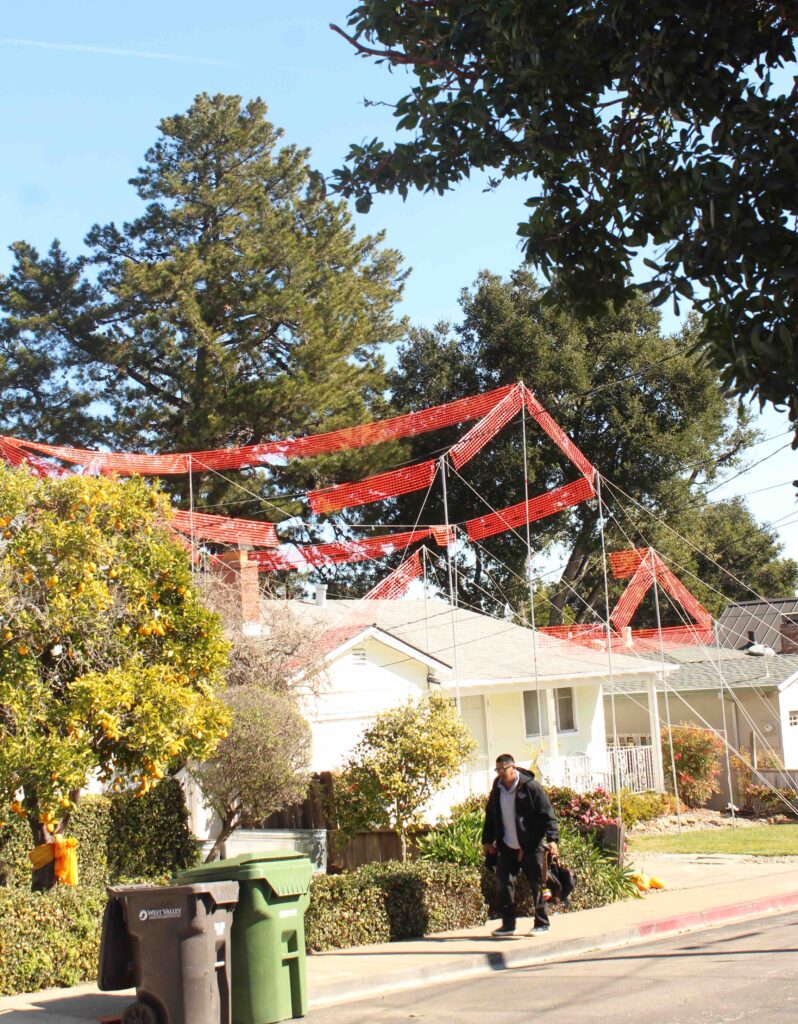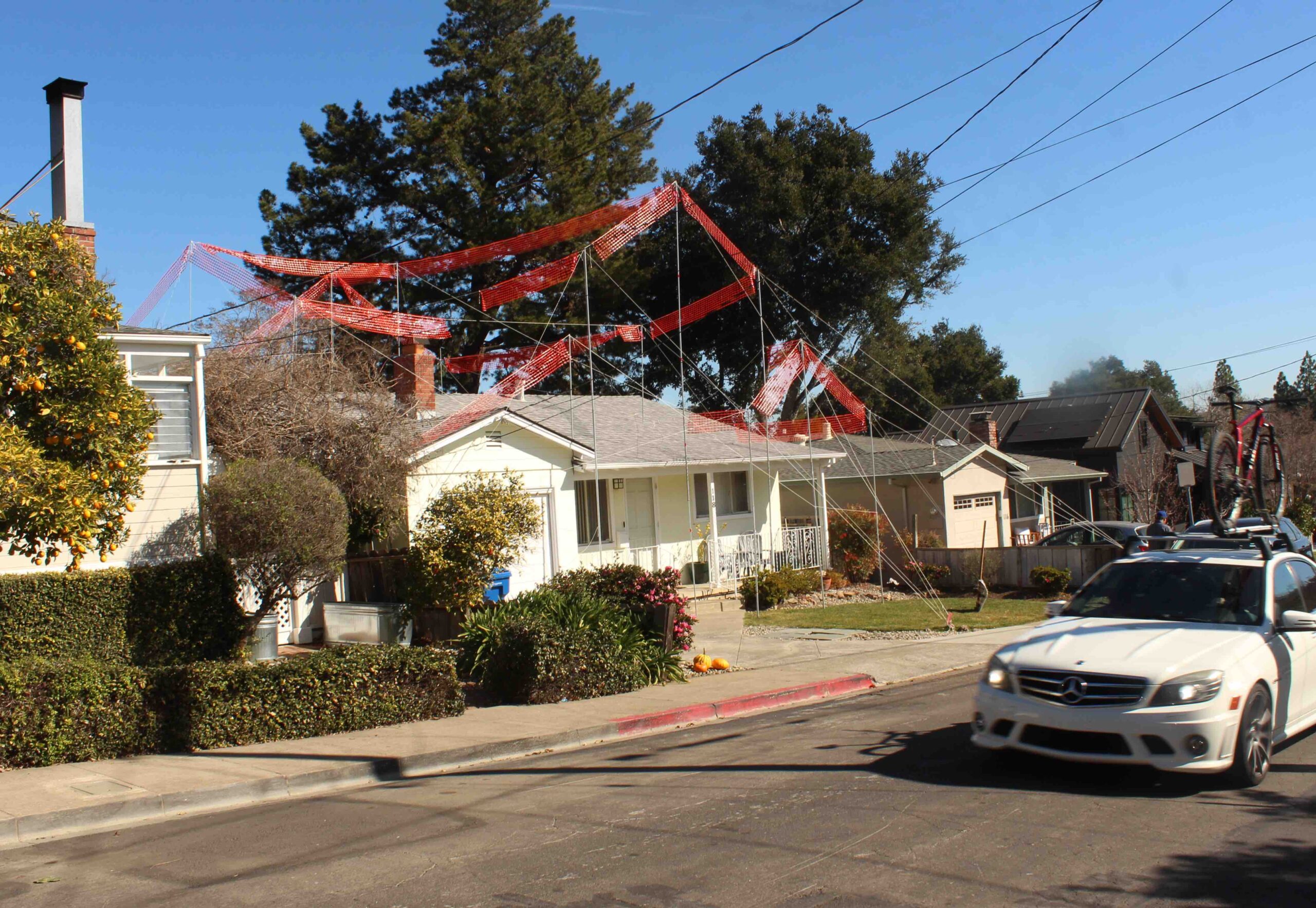The Los Gatos Planning Commission gave the thumbs-up to the demolition of an Olive Street cottage to make way for a larger house that needed their blessing due to multiple exceptions to Town rules.
While this plan was approved unanimously, at the regularly-scheduled Feb. 9 meeting, it was over the objections of some neighbors who worried the decision will encourage others to buy properties to raze existing structures and build beyond size limits.
Located amid relatively narrow lots, the applicant behind the 118 Olive St. project—owners Thomas and Meredith Reichert—sought to exceed the floor-area ratio and to build closer to the edge than allowed.
The applicant said they removed a balcony and replaced it with a sloping roof to appease neighbors.
The Planning Commission looked at the drawings in January and told the applicant to do more community outreach and come back with a more detailed rendering.
The couple submitted the 3D-schema and reported mostly positive feedback from talks with folks in the neighborhood.

However, during the public hearing, the neighbor directly to the west of the site, denounced the project.
“Our expansive mountain view will be completely blocked, and we will be looking out of our living, kitchen, dining and master bedroom windows at tall walls,” she said. “These same areas will lose their incredible natural lighting, as will our entire backyard, as confirmed in the shadow study provided.”
She also wasn’t happy about the side setback dropping from five feet to three feet.
Their community outreach wasn’t as thorough as it should have been, she suggested.
“It was 5:30 Friday night and it was very cold—and it became dark,” she said. “And we had some interruptions, as well, that did prevent us from going down the side yard and into the backyard.”
The neighbor argued approving the development exceptions would set off a ripple effect in Los Gatos.
“If this proposed plan is approved, as is, it will be the beginning of the end for our street as we know it,” she said. “Every cottage sale hereafter will be viewed as a teardown…more overbuilt homes with exceptions galore will prevail, thus beginning the domino effect.”
Bonnie Hurwitz, another neighbor, said she, too, went to view the property that Friday evening.
“Yes, it started to get dark; yes, it became cold—but we also were interrupted by a neighbor that intervened and interrupted the conversation and didn’t allow a productive conversation to proceed, unfortunately,” she said. “So, that neighbor didn’t do any good service to the ensuing possibly productive communication that could have happened that evening.”

So, Hurwitz’s opinion of the project didn’t change much: “It looks like a tear-down to me.”
Keith White, another neighbor, said when he and his wife moved onto the “very quaint” street, they expected it would continue to be developed. But he suggested the applicant should have to at least follow the Town’s code.
“The rules as they were, and the rules as they still are, just not being followed doesn’t seem to be reasonable to me,” White stated. “Why not follow the rules? I don’t fault the new owners, who seem to be very nice—and their architect has done a great job presenting a nice home. But it isn’t that much different to just follow the rules.”
One of the homeowners replied that they would’ve invited people to their backyard or shown them detailed drawings of the renovation had anyone asked.

Architect Jay Plett noted plans are consistent with other homes as they actually exist in the neighborhood; he also noted that the soil report showed no geotechnical problems.
The applicant stated that the rule exceptions came about because the project started its life as a remodel and changed to a teardown when they began pricing out the cost of undergrounding utilities, putting in sprinklers and lifting the house off its foundation.
Commissioner Kathryn Janoff said she was pleased the applicant had taken the requested steps.
Commissioner Kylie Clark said while she agreed that they took direction from the Planning Commission seriously, she did find some comments from neighbors concerning.
“Something that I was particularly struck by was the comment about the concern that if it becomes a precedent for cottage purchases to become teardowns to build larger homes that that could start to be a pattern that we see,” she said. “They bought this property very recently, probably knowing that this was the plan. And it’s important to have this variety of homes, and have these cottages that stay cottages, so that people will be able to afford them.”
Janoff said that because the Planning Commission considers each project on its own merits, the decision to allow the exceptions in this case shouldn’t be seen as setting a precedent.










